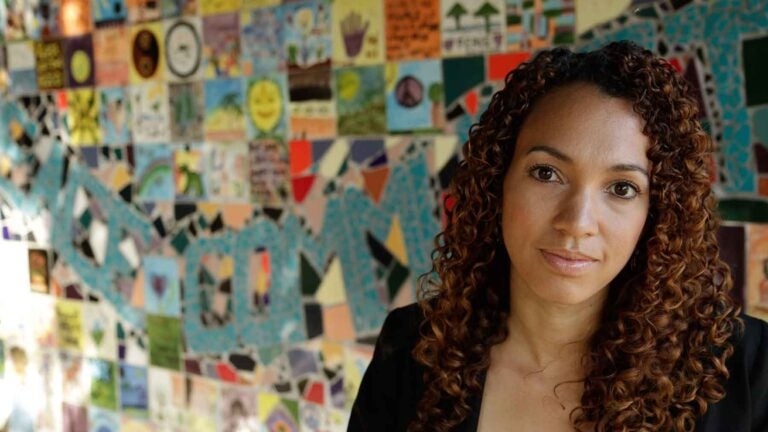
She Empowers Women with Loved Ones in Prison
Essie Justice Group helps launch community leaders ready to advocate for and support other women.
For women with loved ones behind bars, the challenges of supporting a family and keeping a roof over their heads can feel insurmountable.
Gina Clayton ’06, a Los Angeles native, saw these struggles for the first time while she was working as a housing lawyer in New York City. She represented low-income women, many of whom were facing eviction and homelessness. Several of the women she worked with strained to make ends meet while a husband, boyfriend, child or other relative was incarcerated.
“They were taking on all of the childcare responsibilities, and paying for commissary bills, expensive phone calls and visits to prison,” Clayton says.
They also faced social stigma. “They were made to feel ashamed for having loved ones who are caught up in the criminal justice system,” she says. “And so, there was this huge need that I saw. But I also saw this tremendous power.”
This was a group of women who I thought, if their silence could be broken, could be powerful advocates for themselves and for others.
Gina Clayton
After a year of researching the issue, Clayton had a realization: As an attorney, she met her clients one on one. But her clients never met each other. What might happen if she could bring together women facing similar hurdles?
“This was a group of women who I thought, if their silence could be broken, could be powerful advocates for themselves and for others,” she says. In 2014, she founded Essie Justice Group, a program that would help women take charge of the overwhelming difficulties they face. Since its launch, five groups of women have completed the program’s nine-week curriculum, which focuses on healing from trauma and building each woman’s voice as an advocate. Women are nominated to join, usually by an incarcerated relative. Started in Oakland, California, the program has grown to Vallejo, San Jose and Los Angeles. Eleven more groups are underway.
Clayton’s interest in issues of equality and justice began at an early age. She remembers a high school teacher assigning the alternative chronicle A People’s History of the United States by Howard Zinn while class members concurrently read their standard textbook. The experience opened her eyes.
“It was probably then that I first began to realize that there were different versions of history,” Clayton says.
At the USC Dornsife College of Letters, Arts and Sciences, she majored in American studies and ethnicity. She served as chapter president of the NAACP at USC, where she was advised by chairman Julian Bond, and as a research assistant for USC Gould School of Law Professor Jody Armour. Their mentorship inspired Clayton to pursue a law degree from Harvard Law School.
Clayton now empowers others. She recalls one mother who struggled with homelessness and caring for her young children, and almost left the Essie Justice Group.
“She has gone on to speak to national and local press and now runs her own Essie cohort,” Clayton says. “We have had the pleasure of watching her become a leader.”
This is Clayton’s goal. Essie, she says, is not a charity, but a place to help women find their value. “We are building an organization of women leaders.”
